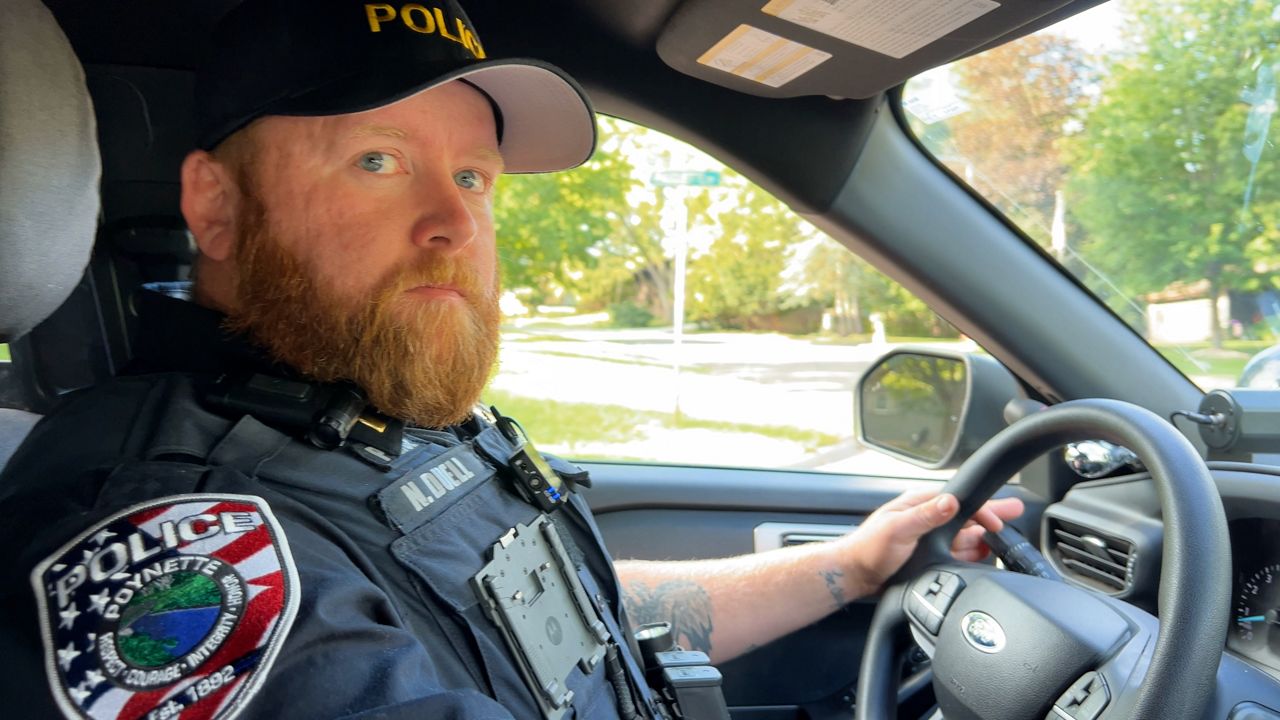This story mentions suicide. If you or someone you know is struggling with suicidal thoughts, call the National Suicide Prevention Lifeline at 988.
POYNETTE, Wis. — A community member in the Village of Poynette recently attempted to commit suicide twice in one week.
What You Need To Know
- The Poynette Police department only consists of five police officers and one lieutenant
- The Poynette Police Department works directly with Northwest Connections on mental health calls
- When officers in Poynette respond to mental health related calls, they contact Northwest Connections by phone. Then, they are told how to respond to the crisis
- Officers in the community feel they are not prepared to handle these kind of situations
Police Chief Adam Rogge said his department was advised not to take the woman into protective custody by Northwest Connection.
Rogge said he was forced to come up with his own plan to help her because he felt she was not getting the help she needed.
“I had one of my officers meet with this individual sometimes daily, weekly, monthly so that person could have someone to talk to,” said Rogge.
Rogge found that having face-to-face interactions helped her. As these visits continued, he said the calls became less frequent.
But Rogge said the attention showed to this particular woman isn’t something the department can do for the entire community. The Poynette Police department only consists of five police officers and one lieutenant.

“We are a small agency, and we don’t have the staffing that would allow us to do that long-term,” said Rogge. “If there were more people that we had to do that for, it just wouldn’t work because a lot of times we only have one officer working.”
The Poynette Police Department works directly with Northwest Connections on mental health calls. It’s a counseling and guidance clinic with several locations throughout the state of Wisconsin. None of those locations are near Poynette.
When officers in Poynette respond to mental health related calls, they contact Northwest Connections by phone. Then, they are told how to respond to the crisis.
Rogge said he doesn’t think this is the best way for mental health situations to be handled.
“Sometimes things might be lost in that phone call because they are not there at the moment, they are not able to see that person,” said Rogge.
Nathan Duell is a lieutenant with the Poynette Police Department and has been working in law enforcement for nine years.
He said he often finds himself responding to the same people every week.
“We have one woman that we go visit every week and have a 20-minute conversation with,” said Duell. “Sometimes that’s all we need to do is get out in the community, talk to these people, and establish a relationship with them.”

Duell said he is glad he can help the community, but he doesn’t feel like he is the best person to respond to these mental health calls.
“That’s the biggest part of it. They are not getting the help they need,” said Duell. “The mental health system in Wisconsin is broken.”
Before becoming chief at the Poynette Police Department, Rogge worked in Franklin County where officers completed Crisis Intervention Training (CIT).
Due to a lack of funding, that training is not available for officers at the Poynette Police Department. He said he would like to see that changed.
“Here, when an officer responds to these types of calls, we are information-gathering and are forced to make a phone call,” said Rogge. “CIT would allow officers to have more of a say in the matter to help make the educated decision to get the officer the help they need.”



